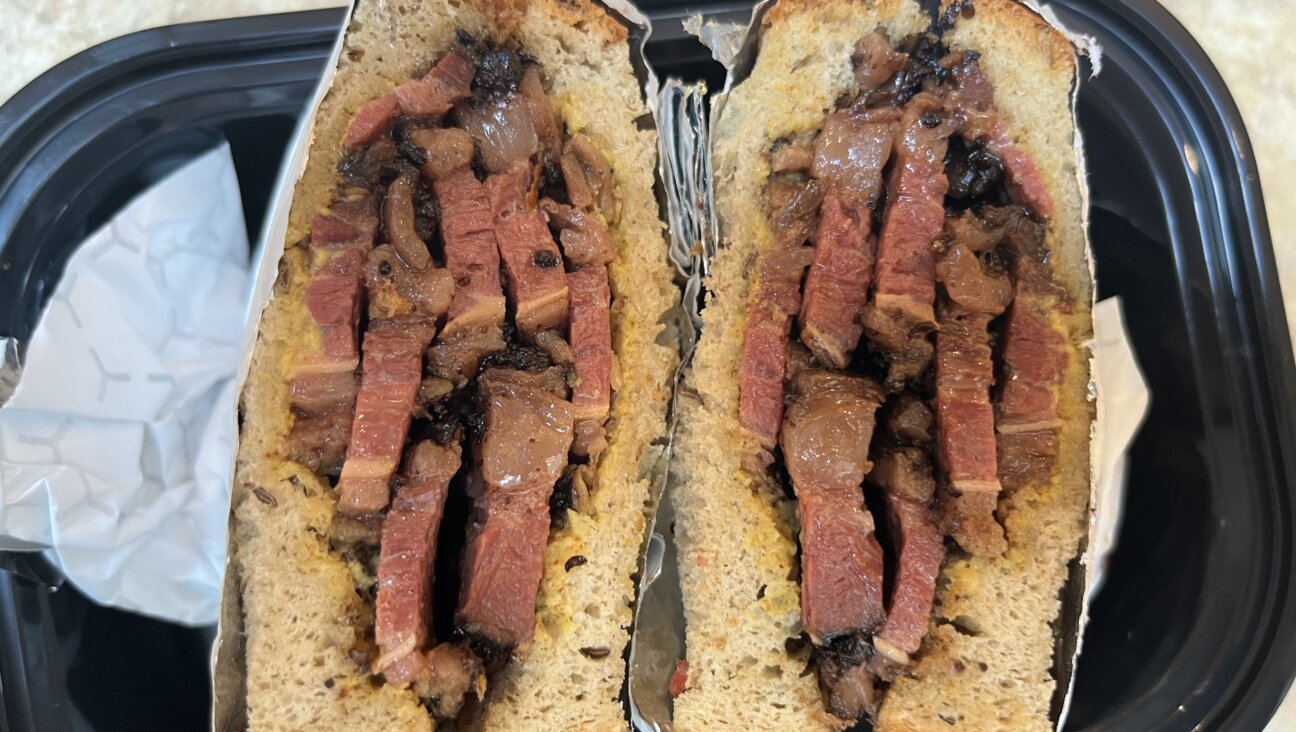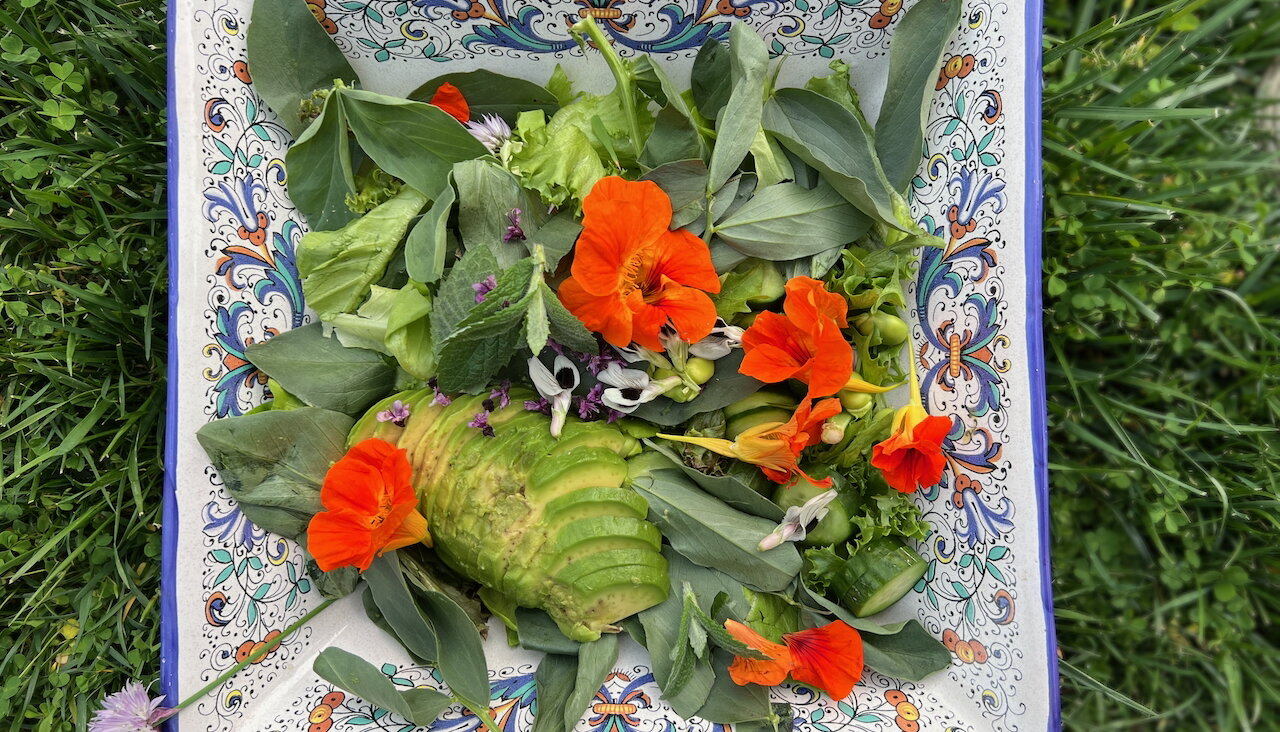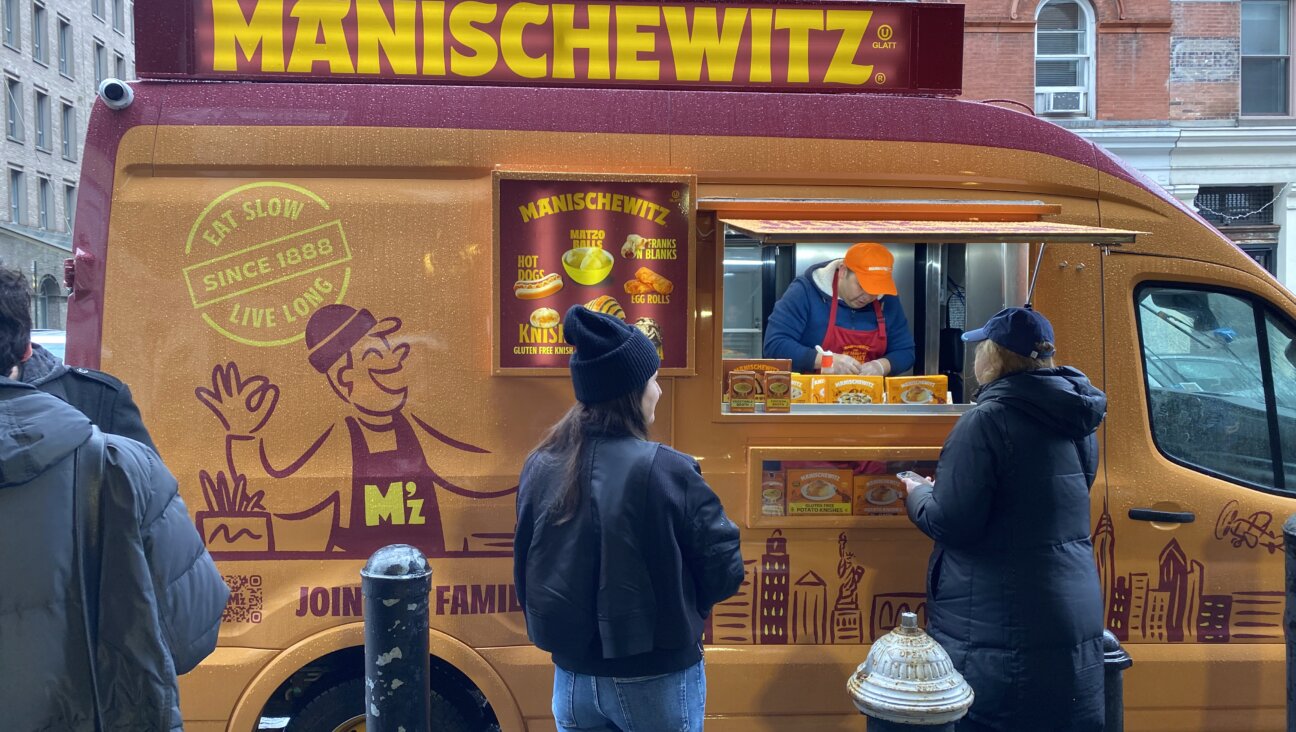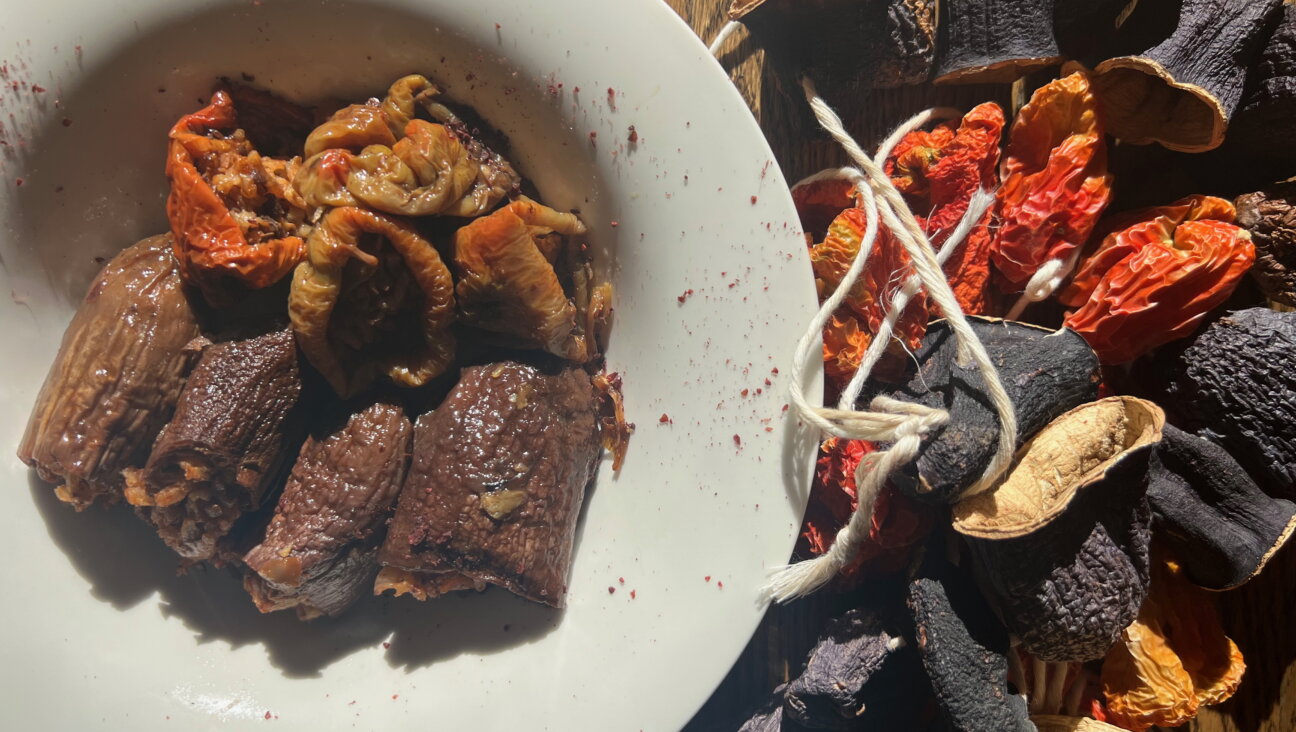This Sukkot: Care to Share?

Image by Photo by Alyssa Berkowitz
As the Jewish holiday season progresses from Rosh Hashanah and Yom Kippur toward Sukkot, each holiday has a special relationship to food that builds on the preceding holiday. Rosh Hashanah is a time of feasting: succulent apples and honey and round raisin challah, a table of sweetened abundance. Yom Kippur, in contrast, is a day of fasting, and even though we are only hungry for a day, the holiday encourages empathy for those who face hunger every day, including 1.4 million New York City residents (according to the NYC Coalition Against Hunger) and millions of people world-wide. Finally, during the harvest festival of Sukkot, we combine feasting with our obligation to feed the hungry.
Leviticus 23:22 describes the harvest commandment of peah, according to which we must leave the four corners of our field to be gleaned by the poor and the stranger. In the system of peah, leaving the corners of one’s field unharvested provides for the hungry in a way that addresses their needs while simultaneously preserving their dignity: the hungry can take produce as needed without the embarrassment or shame that could accompany receiving charity. For those of us living in an urban area, where the majority of the residents are not farmers, we can use the tradition of peah as guidance for the way we address local food insecurity.
This Sukkot, a program called Care to Share is doing just that.
A combined effort by UJA-Federation of New York, [Met Council] (http://www.metcouncil.net/), Americorps and Hazon, the Care to Share Initiative — which is taking place October 3-18 — is working with eleven New York Area Community Supported Agriculture (CSA) projects to encourage their members and others in the community to donate fresh produce to symbolically fulfill the harvest commandment of peah.
Most CSAs regularly donate their leftover shares to various emergency food providers, but the Care to Share Initiative allows community members to make an extra effort in battling hunger by involving non-CSA members as well. At the Ansche Chesed CSA in Manhattan, site volunteer Alan Divack stated that “Care to Share isn’t leftovers. People make a conscious choice to share their land in amplifying what we usually do.” He sees the Care to Share program as a wonderful initiative to combat the growing number of hungry New Yorkers and improve the connection between his CSA and the local emergency food provider. Just as the commandment of peah allows the hungry to glean from the field as needed and without judgment, Care to Share preserves the dignity of those in need: produce is donated directly to emergency food providers so that those in need of food need not feel embarrassed or ashamed about receiving charity. “Dignity works in a customer model. People go in and choose their food.” Using this model, Alan explains that it allows the person in need to food to be an agent in getting that food, rather than feeling guilty about receiving charity.
A story from Yalkut Shimoni, an aggadic compilation that was written following the writing of the Talmud, deepens the connections between Sukkot, care for the hungry and our place in creation:
God gathered the dust of the first man from the four corners of the world… Why from the four corners of the earth? So that if one comes from the east to the west and arrives at the end of his life as he neared departing from the world, it will not be said to him, ‘This land is not the dust of your body, it’s of mine. Go back to where you were created.’ Rather, every place that a person walks, from there he was created and from there he will return.
Yalkut Shimoni, Genesis 1:13
This story reminds us that the land is not our own but rather the source of all creation, and without it we would be nothing. As God’s creations, we must give back to the land that bore us, and accept the hungry and recognize them as part of our land and as part of our responsibility.
Take the opportunity during the holiday of Sukkot to remind yourself to take care of the hungry, in the spirit of the harvest commandment of peah. If you’re in New York, find one of the [eleven Care to Share sites][4] in NYC, Westchester and Long Island where you can donate fresh produce from your garden, supermarket or farmers market. If you’re elsewhere, check out AmpleHarvest.org to find a food pantry near you where you can donate fresh produce.
Back at the Ansche Chesed CSA site, one of the shareholders explained that her membership in the CSA allowed her recognize the presence of hunger in her neighborhood. Because of her participation in the CSA, she said, “I know that the hungry are not far away from us.” This Sukkot, we can work together in embracing the tradition of peah in partnership with the Care to Share Initiative in order to combat hunger in our area.
Alyssa Berkowitz is a student in the Joint Program between Columbia University and the Jewish Theological Seminar. She the Food Development Intern at Hazon, where she is currently working on the Care to Share Program.
The Forward is free to read, but it isn’t free to produce

I hope you appreciated this article. Before you go, I’d like to ask you to please support the Forward.
Now more than ever, American Jews need independent news they can trust, with reporting driven by truth, not ideology. We serve you, not any ideological agenda.
At a time when other newsrooms are closing or cutting back, the Forward has removed its paywall and invested additional resources to report on the ground from Israel and around the U.S. on the impact of the war, rising antisemitism and polarized discourse.
This is a great time to support independent Jewish journalism you rely on. Make a gift today!
— Rachel Fishman Feddersen, Publisher and CEO
Support our mission to tell the Jewish story fully and fairly.
Most Popular
- 1

Fast Forward Ye debuts ‘Heil Hitler’ music video that includes a sample of a Hitler speech
- 2

Opinion It looks like Israel totally underestimated Trump
- 3

Culture Cardinals are Catholic, not Jewish — so why do they all wear yarmulkes?
- 4

Fast Forward Student suspended for ‘F— the Jews’ video defends himself on antisemitic podcast
In Case You Missed It
-

Culture Should Diaspora Jews be buried in Israel? A rabbi responds
-

Fast Forward In first Sunday address, Pope Leo XIV calls for ceasefire in Gaza, release of hostages
-

Fast Forward Huckabee denies rift between Netanyahu and Trump as US actions in Middle East appear to leave out Israel
-

Fast Forward Federal security grants to synagogues are resuming after two-month Trump freeze
-
Shop the Forward Store
100% of profits support our journalism
Republish This Story
Please read before republishing
We’re happy to make this story available to republish for free, unless it originated with JTA, Haaretz or another publication (as indicated on the article) and as long as you follow our guidelines.
You must comply with the following:
- Credit the Forward
- Retain our pixel
- Preserve our canonical link in Google search
- Add a noindex tag in Google search
See our full guidelines for more information, and this guide for detail about canonical URLs.
To republish, copy the HTML by clicking on the yellow button to the right; it includes our tracking pixel, all paragraph styles and hyperlinks, the author byline and credit to the Forward. It does not include images; to avoid copyright violations, you must add them manually, following our guidelines. Please email us at [email protected], subject line “republish,” with any questions or to let us know what stories you’re picking up.















